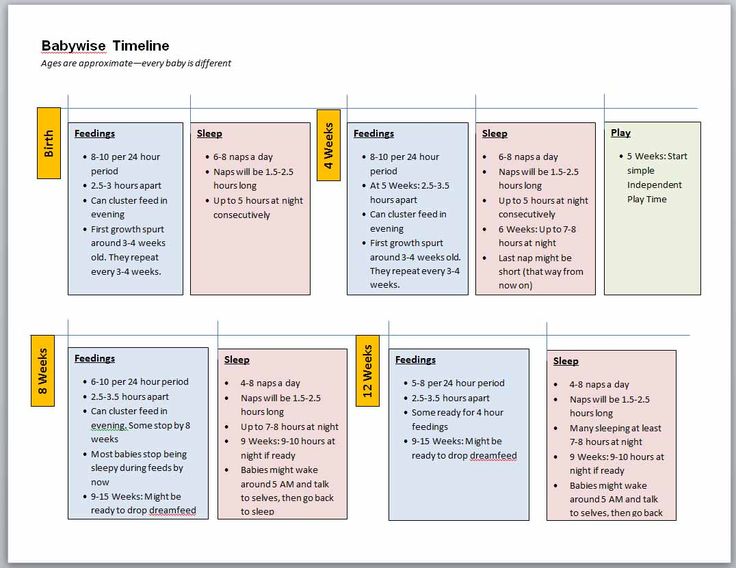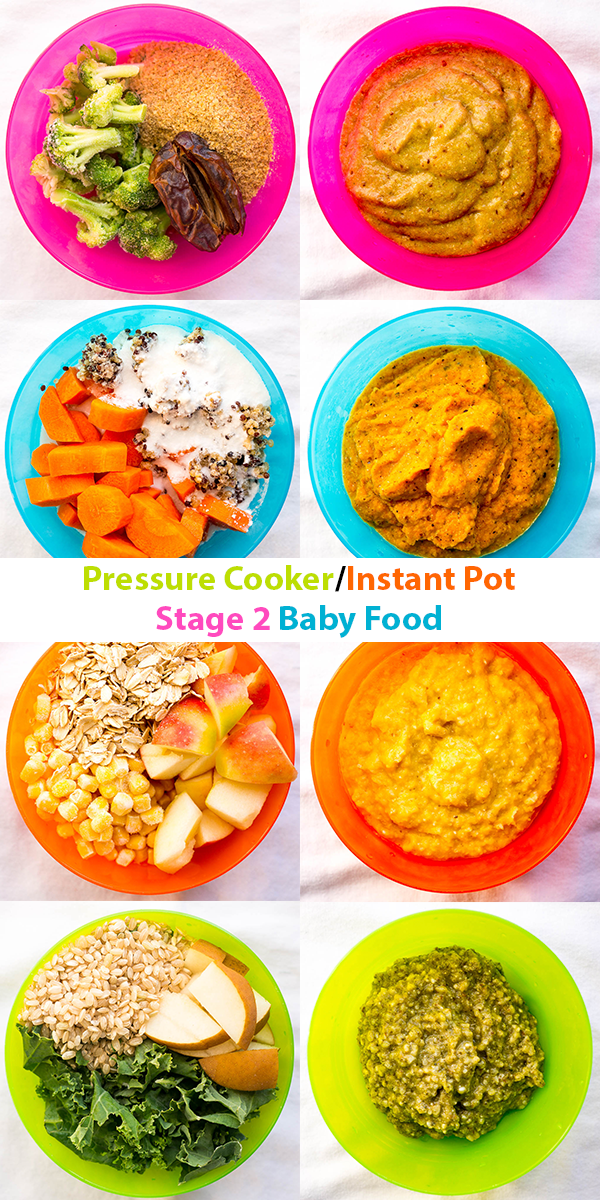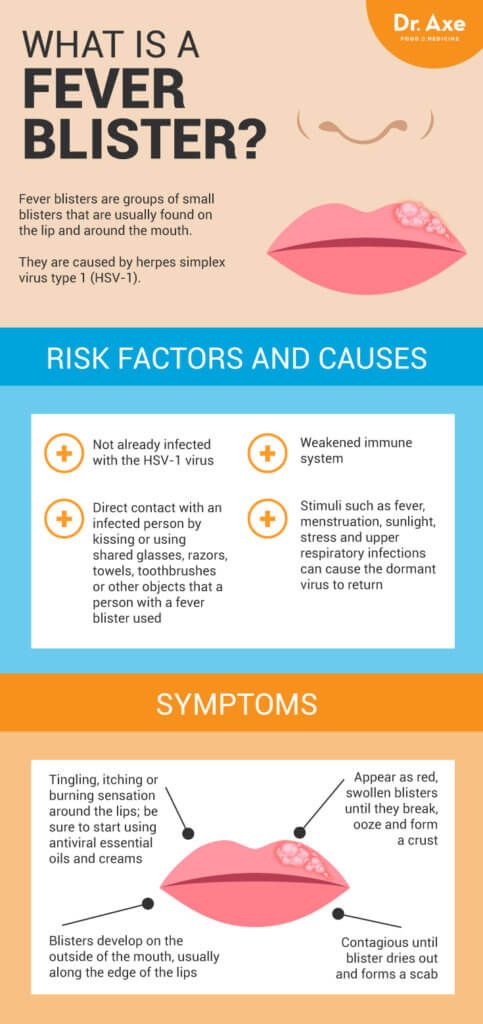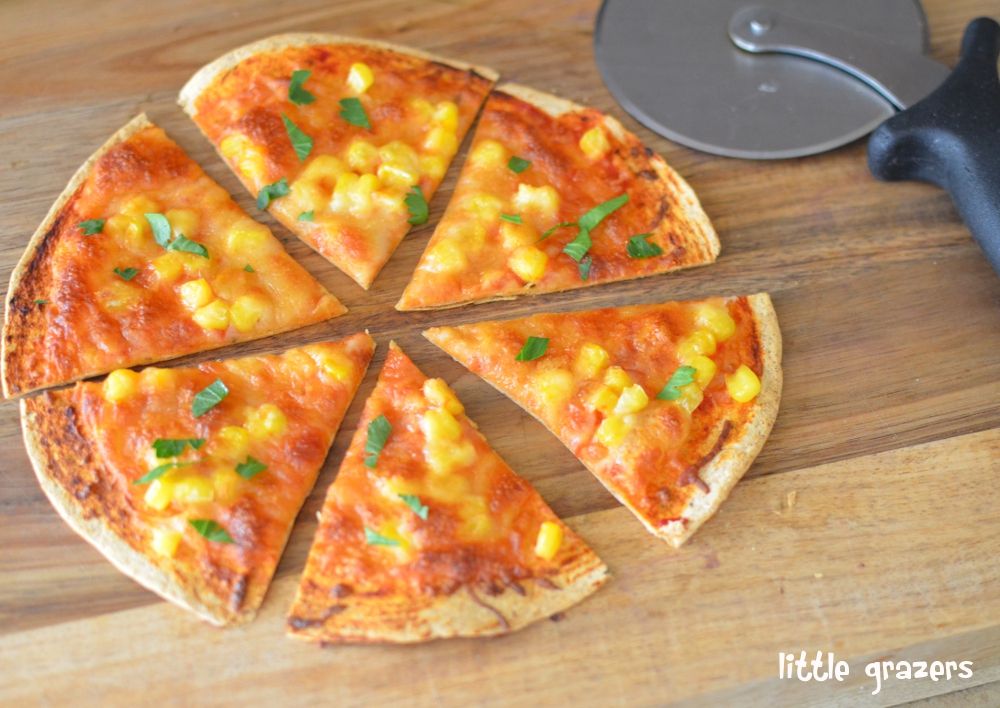Baby not eating food suddenly
5 Reasons Your Baby Refuses to Eat
When your baby refuses to eat it can be very stressful. One thing that will ease your stress is understanding why your baby isn’t eating.
Food refusal in infants and young children is a tough reality for parents to accept. I see 5 common reasons why babies taper off in their eating.
Here, you’ll learn why your baby is refusing to eat and how you can help.
I’ll cover:
- Constipation in babies
- Boredom with the same food options
- Pain
- Feeding practices that are counter-productive
- Readiness to eat
Your baby ate yesterday. And the day before.
But, today, she’s not having food. What’s going on?
One of the most worrisome issues I see new parents face is when their baby refuses to eat.
From being sick to being extra sensitive to texture in food, there are several reason why your baby won’t eat.
When your baby is not eating, it can be a temporary thing, or it can develop into a concerning pattern.
Many babies have a good appetite in the first year or two of life.
They grow at a rapid pace. Their bodies lengthen and they gain weight.
Even their brains are getting bigger and learning is taking off at quite a clip.
All of this infant growth and development takes energy.
As a result, babies generally have a good appetite and a natural drive to eat.
Yet, sometimes babies just won’t eat as well as expected, or as well as they used to.
You’ll need to discern whether this is a temporary phase, or a pattern that’s developing.
Most babies who are in a temporary food refusal phase will show interest in eating and get back on track within a meal or two.
If your baby is not eating and it’s becoming a pattern, he may need more help.
If baby is losing or not gaining weight, appears dehydrated, or is regressing to the bottle and not regaining interest in eating food, then it’s time to see the doctor.
I’ve seen many babies who won’t eat in my career as a pediatric nutritionist.
Often, by the time I see them, they’re in a pattern of not eating enough and growth is faltering.
When we get to the root of the challenges, several things have come together to create the issue.
In other words, it’s not usually one thing, but a few things that have created the “perfect storm.”
Let’s take a look:
5 Reasons Your Baby Refuses to Eat. #babyfood #firstfoods #startingsolids #healthyeating Click To Tweet
#1: Your Baby is ConstipatedWhen babies transition from a liquid diet and start to eat solid foods, constipation can set in.
Liquids such as breast milk or infant formula are fairly easy to digest and absorb in the intestines.
But add in solid food and the gastrointestinal tract has to do more work.
This can slow things down.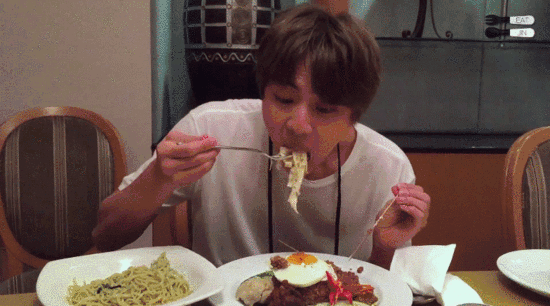
And this can cause baby losing appetite.
I had a similar experience with one of my kids.
When my first born transitioned from breast milk to solids, we had a heck of a time with constipation.
In part, her digestive system was getting used to solids and a new baby feeding schedule.
When babies are constipated, it causes a feeling of fullness.
If the intestinal tract is full of stool, the stomach may fill up, and this may lead to a lost appetite and less eating.
You can help your baby if he’s constipated with home remedies such as diluted prune juice, but take care to use only those that are appropriate for an infant.
Talk with your pediatrician if you’re worried.
Also, as your baby grows, you’ll want to incorporate more fiber into her diet.
#2: Your Baby is Not Eating Because He’s BoredRecently, I met a child who, at the age of 22 months, was still eating baby food.
You could say by this point, he was hooked on smooth purees and was very disinterested in textured food other than crunchy crackers and cereals.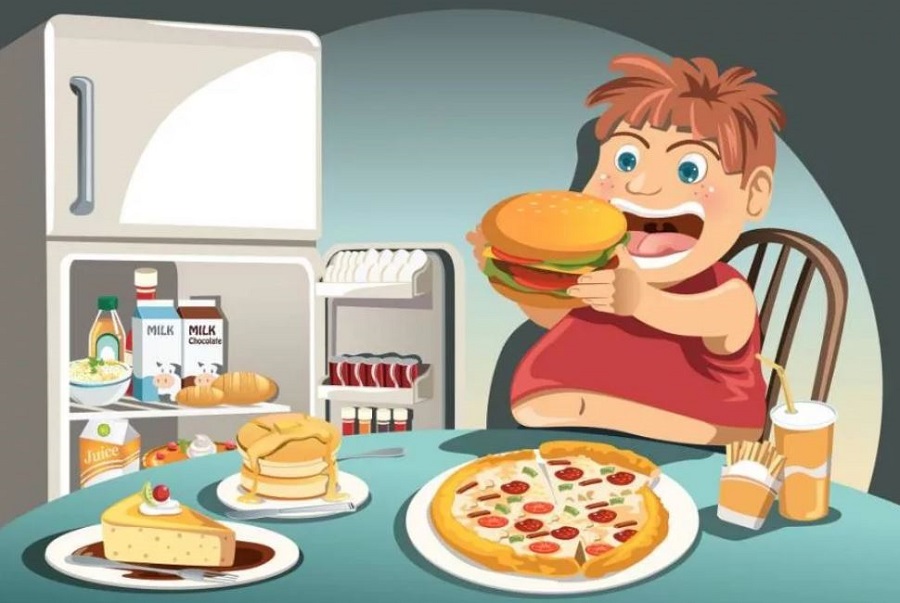
He was also delayed in his self-feeding skills.
Pureed foods are great and many babies love them.
Some babies love them too much, getting hooked on them.
Others don’t get challenged with more texture, receiving “safe” purees and familiar flavors.
After you introduce solids, and by 7 months, most babies should be moving on to more texture, flavor and food experiences. In other words, this is the typical age for an upgrade.
Babies and young toddlers are naturally curious. They want to explore and try new foods.
Holding them back when they are developmentally ready to move on can delay their overall developmental progress, including language skills, self-confidence and of course, nutrition.
One study showed that children who didn’t move on to more textured foods like chopped table food and finger foods by 9 months showed significant picky eating later on at 7 years of age.
If your baby is refusing purees and spoon-feeding, or stuck on baby food pouches, he may be bored with food.
Skip to chopped table foods or try a baby led weaning approach, instead.
Boredom may be a sign your baby needs more texture, flavors, and more autonomy (Hello, finger foods!) with self-feeding.
#3: Your Baby Won’t Eat Because She’s in PainTeething is a common culprit for a baby not eating. His mouth hurts.
But there are other reasons for pain that may be contributing to why your baby won’t eat.
An illness involving a sore throat or ear pain may cause short-term food refusal.
Reflux (a condition where baby’s stomach acids creep up into the esophagus) can cause pain and impede interest in eating.
If this is chronic, your baby may associate pain with eating and develop a pattern of disinterest.
Colic and other digestive problems including gas, cramping or other symptoms can be problematic.
Food allergies or intolerances such as esophageal esophagitis, (EoE), oral allergy syndrome (OAS) or a food allergy to one of the Big 8 (ie, milk, egg, wheat, etc) can cause pain, discomfort and reduce food intake.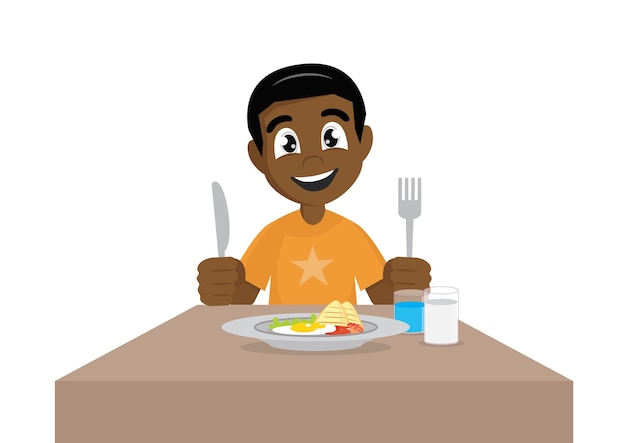
An acute illness like a cold can turn any baby off from eating.
However, most babies will resume eating when the illness passes.
If you suspect a more involved, underlying medical condition is the root of your baby’s refusal to eat, see your doctor.
#4: You’re Using Negative Feeding PracticesFeeding should always be a positive experience, for any child, at any age.
When it’s not positive, young children can make negative associations with eating.
For example, if your child is eating with a baby-led weaning approach and is gagging frequently, this could be negative for him.
The same goes for spoon-feeding your baby.
If you force bites of food when your baby is full and doesn’t want any more, you could trigger a negative association with coming to the highchair to eat.
While most babies will recover from minor incidents like gagging, some babies who are more sensitive to their environment, transitions and changes, or a have a sensitive temperament may imprint these negative experiences.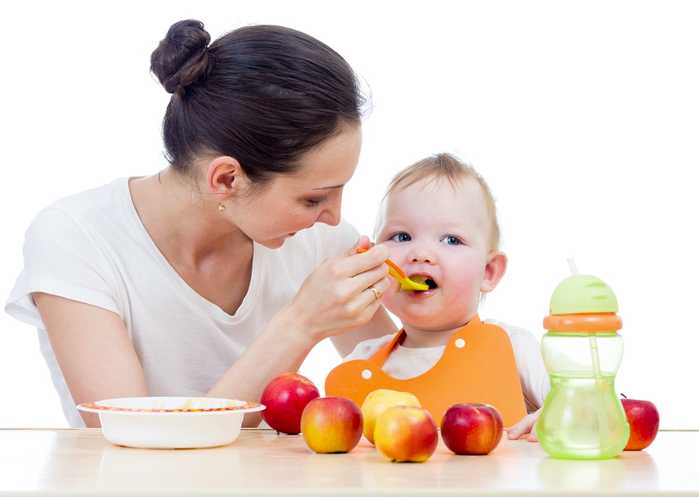
You can imagine, this can make a baby withdraw from food, or at least negatively influence her desire to eat.
To avoid this situation, brush up on your feeding style and feeding practices so they are positive, connected and responsive – this will help you create a positive feeding experience for your baby.
You can learn that and more in my book, The Smart Mom’s Guide to Starting Solids.
Grab this on Amazon#5: Your Baby is a Late BloomerBabies are unique and have individual characteristics, but they all follow along a developmental scheme.
Tackling the different stages of development happens at different times and reflects what we call developmental readiness.
We have stages of readiness for solids, which is a guideline to help you know when your child is ready to take the next step.
For example, babies are generally ready to begin first foods around 6 months.
Some are ready earlier, some are ready later.
It’s important to watch for the signs.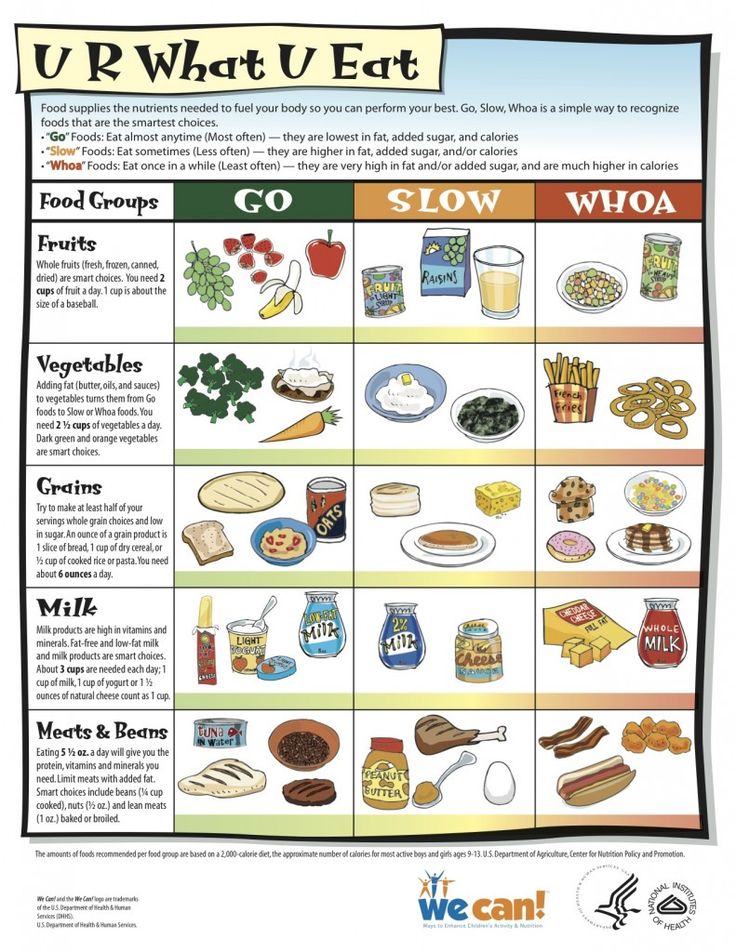 (Read more about those here.)
(Read more about those here.)
Some babies are slower to show signs of readiness for solids.
They are late bloomers, if you will. Kind of like my late readers!
No matter how much we practiced reading skills, they weren’t early readers. They learned on their own time table.
Some children are poorly coordinated in their ability to chew and manipulate food in the mouth. They need more practice.
Some find textures offensive and need more time and experience with them to warm up.
Other babies are more sensitive to the sensory characteristics of food. They may gag when they see, touch or taste food.
This may be why your baby refuses to eat. Don’t fret too much if your baby is a late bloomer.
Stay alert to signs of readiness and provide opportunities for more experiences with food.
One thing you can do is plop a spoonful of puree on the highchair or a spoonful of chopped food and just let your baby mess around with it.
If your baby is holding or touching food, show him how to bring his hand to his mouth.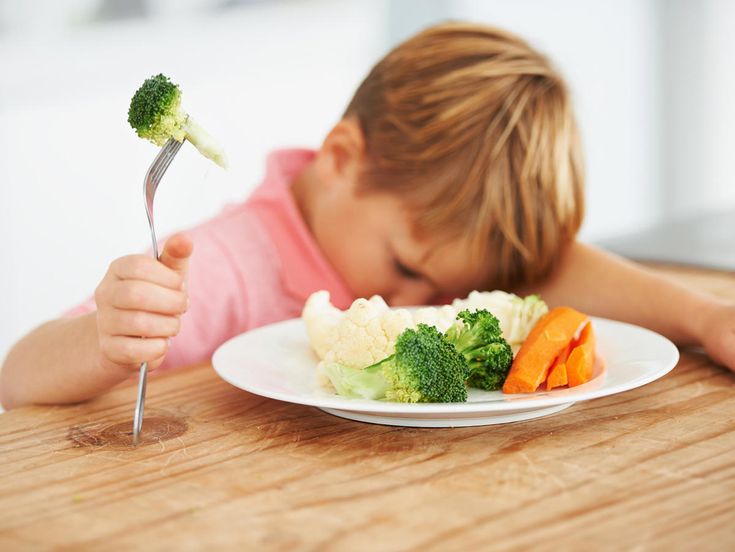
Remember, keep it positive and let your baby lead. No forcing!
If your baby isn’t ready and you force it, this won’t be fun or pleasant and may lead to disinterest or a situation where your baby refuses to eat.
[Watch our YouTube video about Baby Feeding: Which Mistakes to Avoid]
Get More Help if Your Baby is Not EatingHow long should you wait to do something when your baby refuses to eat? Should you wait it out?
At what point is waiting it out potentially causing more challenges down the road?
In most cases, your baby will sort things out on his own, provided you offer regular, balanced meals and snacks, have a positive feeding environment, and stay relaxed.
Here are the Signs You Need to Visit the DoctorIt’s time to head to the doctor’s office if your baby:
- isn’t moving on to more textured food by 9 months
- still refuses to eat
- shows little interest in eating
- seems distressed with eating
- appears dehydrated
- is losing weight
In this case, it’s best to further investigate the root issues, such as a food intolerance or allergy, digestive problems, or sensory challenges.
Perhaps your baby needs a feeding evaluation, or you need a dietitian to evaluate your feeding approach including the feeding schedule, food offerings and feeding interactions.
Help Your Baby Love Food!Feeding your baby should be a positive, learning experience.
For more resources and support in this area, check out the following materials:
Try New Food Workbook is a very helpful resource for parents who may be entering into the picky eating phase.
It’s also a great way to learn how to prevent picky eating!
Listen to The Nourished Child podcast for free information about baby nutrition and feeding.
Tune in to these podcast episodes for more inspiration!
Simple Tips for Adding New Foods
Reasons Your Child Won’t Eat (& What You Can Do)
You may also want to read:
- 11 Stool Softener Foods for Kids
- My Favorite Children’s Books about Nutrition
- 25 Allergy Free Snacks for School
BABY FEEDING MISTAKES | AVOID These 4 Mistakes & Start Your BABY on a HEALTHY EATING PLAN
Watch this video on YouTube
This post was updated on January 17, 2021 to include more resources for
What to do if your baby is refusing to eat!
If you would like a PDF version of this blog delivered directly to your inbox, pop your details below.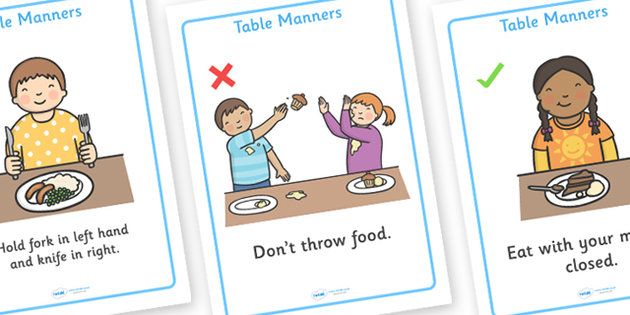
Are you battling with a baby that constantly pushes away the spoon? Often babies get off to a great start with weaning and then suddenly they don’t want to eat, and it can be a worry!
In this blog I’ll take you through some of the common reasons why babies refuse to eat and what you can do to help overcome this.
Why do babies refuse to eat?
Let’s start by going through the reasons why babies refuse to eat. Some of them are a normal part of their development and others may be linked to feeling unwell.
Taste and flavour perception
Babies are born with a preference for sweet tasting foods (primed to seek out breastmilk), and therefore bitter or sour flavours like green veggies may take a little more persuasion to eat over sweet foods like fruit.
Babies also have more taste buds than adults, which means that foods can taste different to them.
Rejection of a food does not necessarily mean they don’t or won’t like it. They just need lots of time and experience with those unfamiliar foods.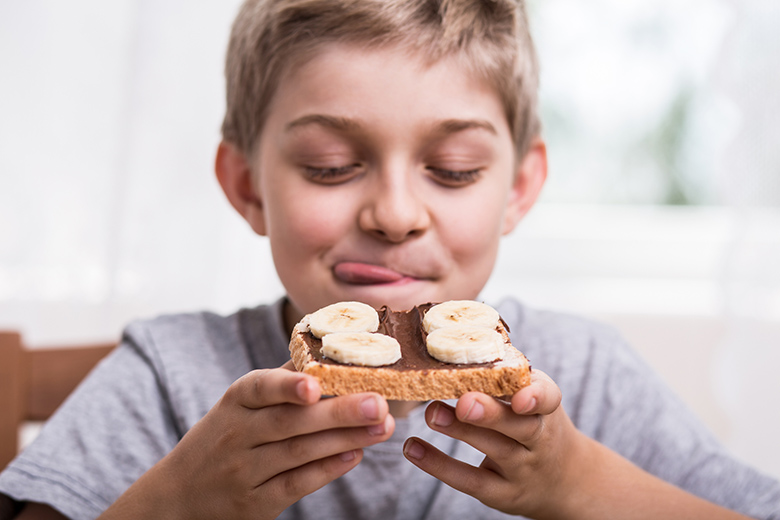 They almost have to learn to like them and this can last for several years.
They almost have to learn to like them and this can last for several years.
Growth slowing down
Between birth and their first birthday your baby goes through a massive growth spurt. Typically, they will triple their birth weight but this slows down quite significantly after 12 months.
Therefore, if you have an older baby who is suddenly turned off their food, it is likely because their appetite has reduced in response to their lower nutritional requirements. This is completely normal and to be expected.
Routine and milk feeds
Sometimes babies don’t eat well if they have milk and food too close together. Milk is very filling and so babies who love their feeds may just be too full up to have any desire to eat.
It’s also worth remembering that drinking milk is easy but eating food requires skill and so often babies will gravitate towards the easy option.
Once your baby is on three meals a day (usually at around 7 month) it’s good to stop feeding on demand and introduce a schedule leaving gaps of around 2.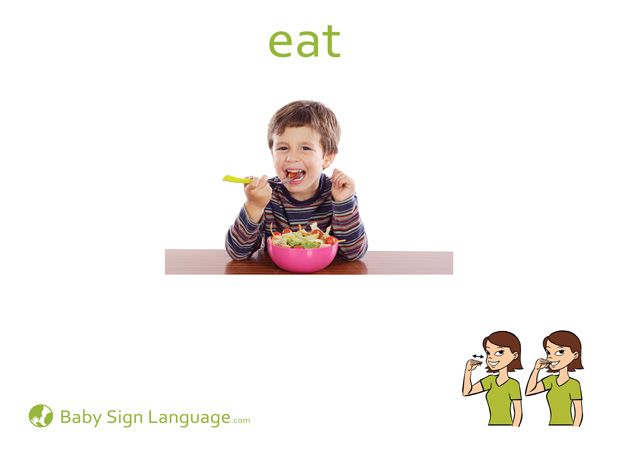 5 – 3 hours in between milk and food.
5 – 3 hours in between milk and food.
If you’re not sure how this looks or can’t work out how best to fit this around naps, I have baby routines available in my shop for 7-9 months, 10-12 months and 1-3 years. You will also get a sample meal plan and a portion size guide.
Tiredness
Is dinner the hardest meal of the day? Often parents tell me that their little ones do quite well at breakfast and lunch but dinner is a disaster.
It may be tiredness that’s the issue here as it’s getting towards the end of the day. Remember I mentioned that babies often gravitate towards what’s easier? Well, eating food can be hard work so bear this in mind, and make dinner an easy meal.
A top tip is to make breakfast and lunch a little more substantial and that will take the pressure off dinner time.
Why do babies reject both new foods and foods they previously liked?
Babies can be quite unpredictable. They might love a certain food one day and then spit it out the next.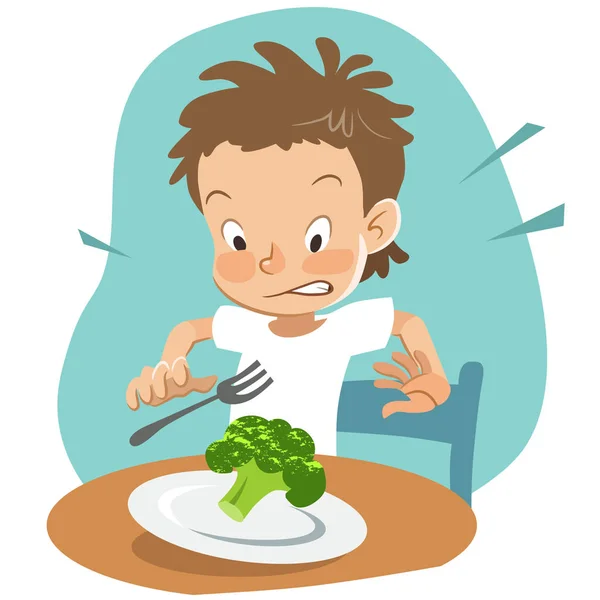 Be reassured that this is completely normal and often you just need to take it in your stride and be patient with them.
Be reassured that this is completely normal and often you just need to take it in your stride and be patient with them.
One of the biggest mistakes I see is when parents see this rejection of food as dislike and so stop offering it. It can take multiple times (some people quote up to 10 times and other research shows up to 200 times) for babies to accept tastes, flavours and textures, so my advice is to persevere. (1)
Try again another time. And then again. And again. And so on. Repeated exposure to food is so important during weaning and toddlerhood.
But my baby is suddenly refusing all food!
Ok, so we have covered the normal (and somewhat expected) food refusal that happens. But what do you do if your baby is suddenly rejecting all foods you offer? First, we need to understand why.
Are they teething, unwell or coming down with a bug?
Pain, discomfort or generally feeling under the weather will switch off appetite completely and babies won’t want to eat.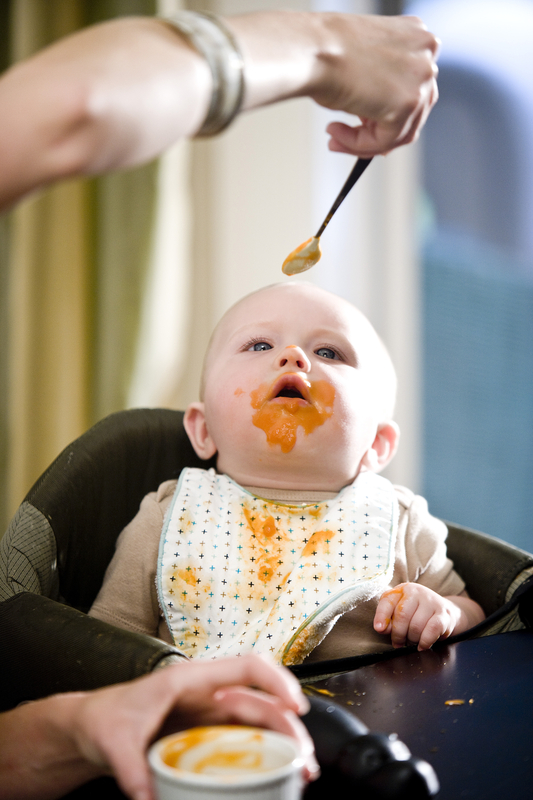 The most common of these is teething which can be painful for babies.
The most common of these is teething which can be painful for babies.
To ensure they continue to eat some food, offer baby paracetamol and make sure this is given regularly in accordance to the instructions on the bottle so that they are continuously topped up and their pain doesn’t break back through.
Are they comfortable in their highchair?
Babies need to have good stability to be able to master the skills required for eating. Believe it or not, eating is a complex process and involves 8 different sensory components.
Comfort and stability around their middle, around the backs of their legs and under their feet is crucial. A good highchair will support hips, knees and feet at 90 degree angles yet I often see little legs dangling!
That can be a real problem when it comes to eating well, particularly the more challenging foods. My advice is to invest in a decent highchair or if you can’t manage that, buy a strap on footrest like the Footsie. You can get 10% off if you use the code TCN10 at the checkout.
Are you encouraging them to eat a bit too much?
Ok, a bit of tough love here but you need to know that babies and toddlers really don’t like it when we parents encourage them to eat. Because babies are still learning, and we are incredibly worried that they are not eating well, babies will interpret our mothering as pressure. And pressure releases a stress hormone in their bodies that switches appetite off!
The best thing to do here is to take a step back, bite your tongue and let your little one explore the food, play with it and make the decision on whether to eat it or not for themselves.
If your baby is persistently refusing to eat, is losing weight, coughs or splutters during mealtimes and is really struggling with food, please do seek help from your GP or health visitor to rule out any medical problems. (2)
Can babies develop a food aversion?
Just like everyone else, babies too can dislike certain foods. However, as we discussed above, make sure you don’t make this assumption based on the first few tries! Food aversion is different.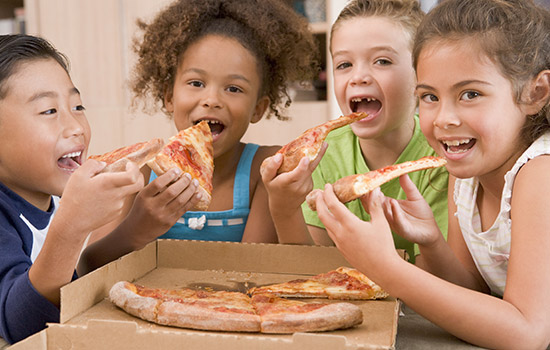
It stems from when your baby associates eating with an unpleasant experience they may have had such as a choking episode, unmanaged reflux, an allergic reaction or being unwell. (5) (6)
Food aversions are a true fear response and your little one will need professional help to overcome this. (3)
Can this be linked to bottle aversion?
Yes, this is often referred to by the medical community as oral aversion and may have started from an experience associated with bottle feeding or tube feeding if your baby was premature (4).
The fear that food (or milk) is going to hurt them causes a spike in adrenaline and babies will often become very distressed, cry and arch their backs if food or bottles are brought towards their mouths.
Again, professional help from a feeding team is really important here.
How long will my baby’s food refusal last?
It depends on the nature of the refusal.
If it’s part of normal development, tiredness or an issue with their routine, it may well pass with the next developmental leap or the changes you make.
If it is a feeding aversion, then there is much that needs to be addressed and it may take longer.
Is food throwing a sign of my baby refusing to eat?
No, not necessarily. More often than not, a baby will throw or drop food because they are experimenting with it. They are learning object permanence and where does the food go if I drop or throw it? And they are also noticing the sensory response i.e. the sound of the splat it makes when it hits the floor!
They might also be doing it to get a reaction from you. They may be testing boundaries but they also may be looking for your attention, even if it’s negative attention. Babies will also throw or drop food to get rid of it. Often, this can be a sign that they’re not hungry or that they have finished the meal.
Whatever the reason, I imagine this isn’t a habit you want them to stick with, so do remind your baby that “food stays on the table.”
Is your baby refusing to eat because of you?
Your little one might be looking for your attention.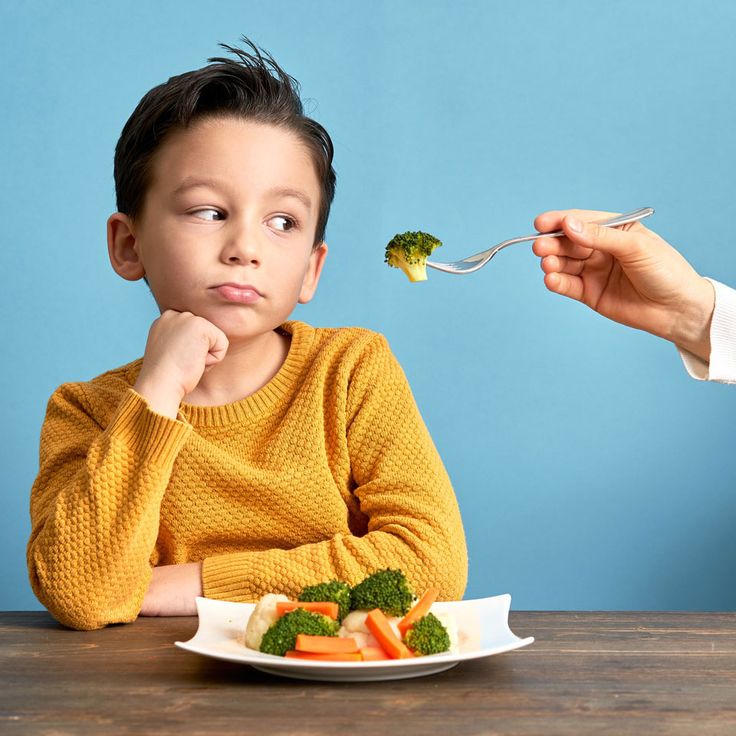
If they spend all day at nursery while you are at work, they may use mealtime behaviours as a way to get a response from you. Even a negative response is good to them, simply because they get your attention. Often the best way to manage this is with lots of one-on-one time outside of the mealtime.
The best way to manage this
Sit with your baby while they eat and engage with them.
Just like us, babies don’t want to eat without company. Pull up a chair and eat together rather than pottering around the kitchen or starting on the washing up.
It may be too early for you to eat but if you can have a tiny portion of whatever they are having so that you can share the mealtime, your baby will benefit hugely. You can always have your proper meal later.
Portion sizes for babies
A common worry amongst parents is ‘Is my baby eating enough?’. It’s important to remember that all babies are unique. One baby will eat differently to the next and it’s so important (but not easy) to avoid comparison with your friend’s baby.
If your little one is growing and gaining weight, has frequent wet nappies and seems content and happy, then it’s likely that they are getting enough.
Let your little one guide you. Babies have an amazing ability to self-regulate their intake. (8)
As long as they are offered milk and food, they can decide how much they need.
If you need a little bit more help, or are worried that your baby isn’t getting enough, you can purchase our helpful mini guides on portion sizes for weaning here.
What should all parents do to help their baby eat well?
There are a few top tips I can give you so that your baby grows up to be a happy healthy eater and interestingly, many of the parents that I work with know this, but don’t do it.
Repeated Exposure
The last thing you want to do if your baby is refusing to eat certain foods is to stop offering them.
Perseverance is key as often little ones have to ‘learn’ to like food. A brilliant example of this is my son Charlie. At the age of 3 he eventually started eating mushrooms despite refusing them every time beforehand!
At the age of 3 he eventually started eating mushrooms despite refusing them every time beforehand!
Be A Role Model
Eat with your little one and eat the same food as them. They are much more likely to accept the food if they see you eating (and enjoying) it too.
Keep Calm
Try to be a calming influence. If they notice that you’re worried, your baby will become even more unsettled and you will have less chance of them eating.
Avoid Encouragement
Never be forceful or even pressure them to try or take one more bite of the food. Let them play around with the food. They may just need time to get used to it before they want to give it a try. Baby steps!
Routine
Try to stick to a good schedule for meals and milk feeds. They may get even more fussy if you chop and change in response to their refusals. (11)
Be Responsive
Responsive feeding refers to observing your child’s cues and acting accordingly in response to them. It’s about letting your little one guide you.
As a parent, it’s your role to:
-
Decide what your baby’s meal will be
-
Decide when they will eat – their routine
-
Decide where they will eat – in a well supported highchair
Your baby’s role is to:
-
Decide if they are going to eat (sometimes they might not)
-
How much they are going to eat
-
When they have finished eating
It’s really important not to keep offering your baby more food when they are showing signs that they are finished.
Signs might be, turning their head away, avoiding eye contact, clamping their mouths shut, throwing/dropping food over the side of the highchair. (12)
By asking young children to eat, or stop eating, it is going against their intuition – a skill that babies are born with which could lead to issues later in life such as overeating and loss of appetite regulation. (8)
If you’re worried that food refusal is impacting on nutrition
The best way to assess if your baby is getting enough nutrition is if they are growing and gaining weight.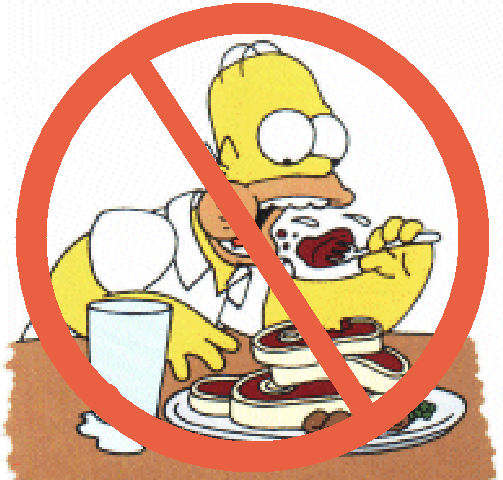
Your health visitor will regularly take weight measurements and plot them on growth charts. You may need to ask for length to be measured. If your little one is following their centile line, then you can be reassured that they are doing well!
Don’t forget that plenty of nutrition still comes from breastmilk or formula milk during early weaning.
Meal planning to ensure babies get a wide variety of foods is important once 3 meals a day are established. This is usually around the 7-9 month mark.
Here is my 5 step guide to baby meal planning:
-
Start with an iron-rich protein food (meat or plant based) like some slow-cooked lamb, a minced beef meatball, a lentil puree or ½ a boiled egg.
-
Add a Vitamin C rich food, for example, a broccoli floret or a couple of strawberries halved.
-
Finish with an energy rich food like a soldier of buttered toast or sweet potato mashed with butter.
-
Consider the range of colours, textures and smells.
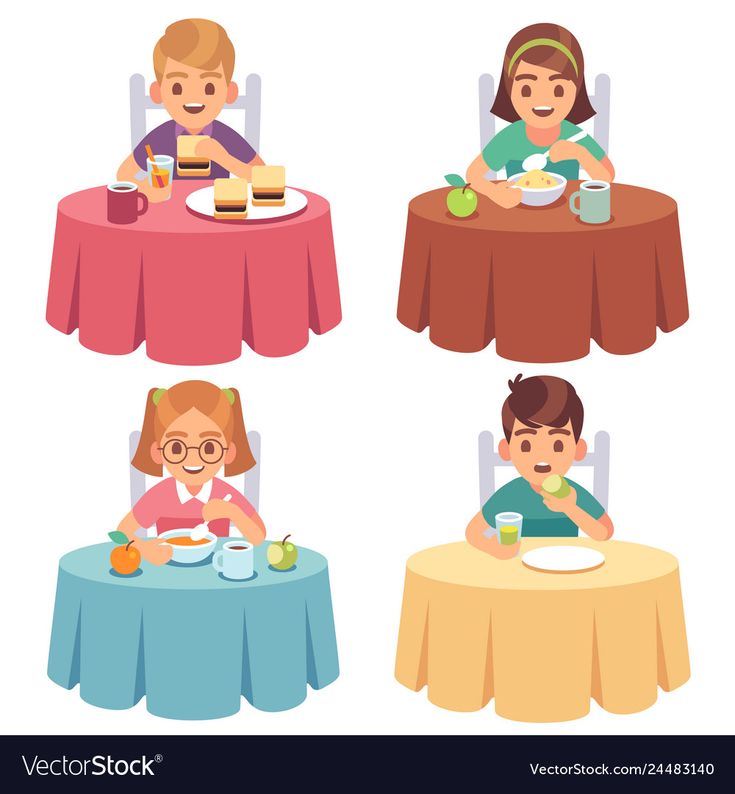 The sensory experience is just as important as the nutritional one.
The sensory experience is just as important as the nutritional one. -
Ensure you’re giving a vitamin supplement containing A, C and D daily (if you are breastfeeding or if your baby is having less than 500ml of formula) such as Nature & Nurture Baby & Child vitamin drops.
For further guidance on baby nutrition, check out my blog post.
With thanks to Claire Pearson, Lauren Telford and Catriona Lawson for their help in bringing this blog together.
Sarah Almond Bushell MPhil, BSc (Hons) RD MBDA – Registered Dietitian & Children’s Nutritionist
Nine reasons why a child does not want to eat
Komsomolskaya Pravda
House. FamilyMom and babyMom and baby: HealthHealth: parental advice
Anna GERASIMENKO
October 18, 2013 19:10
Small-minded or capricious? Are you afraid or just don't like it? Protests or never been hungry? We are sorting out with a psychologist why children may not have an appetite
- I will not eat your porridge until you buy me a hundred thousand Barbie dolls!0004
“A spoon for mom, a spoon for dad… Eat porridge, otherwise you won’t grow up… If you don’t eat, we won’t let you watch a cartoon…” With persuasion, threats, cunning, with songs and dances, parents try to feed their kids.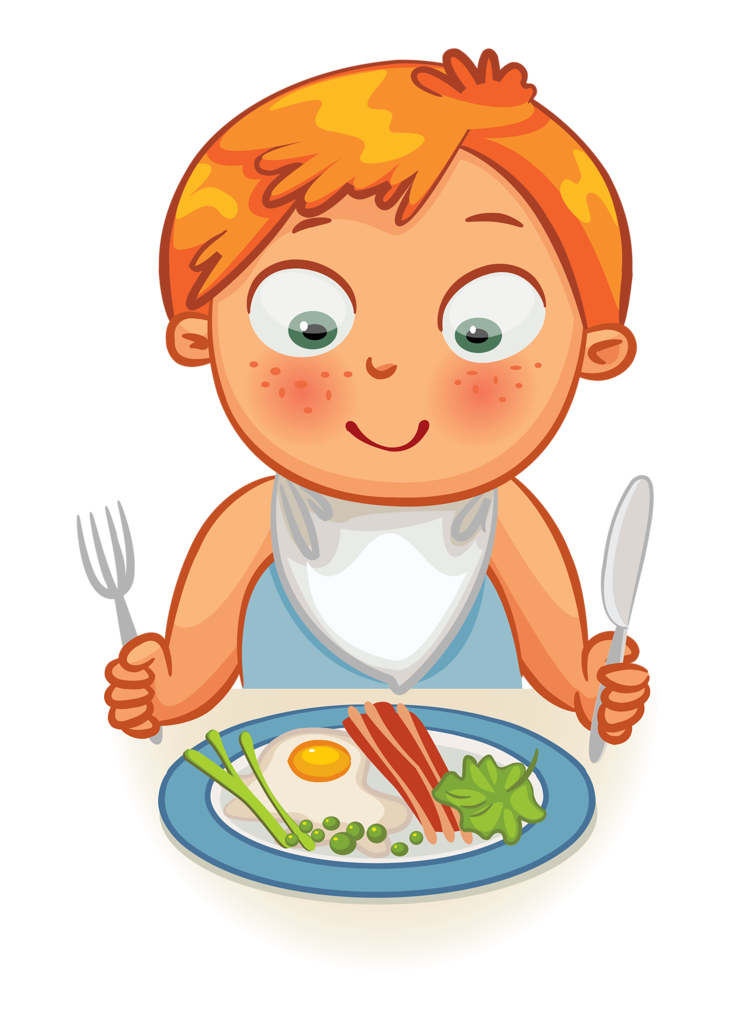 Studies show that 20 to 60 percent of preschool and school-age children have nutritional problems. More than half of 4-5-year-olds are considered small-toddlers, and among nine-year-olds, 48 percent of children do not eat well.
Studies show that 20 to 60 percent of preschool and school-age children have nutritional problems. More than half of 4-5-year-olds are considered small-toddlers, and among nine-year-olds, 48 percent of children do not eat well.
Feeding problems in childhood can lead to growth failure, eating disorders, and learning difficulties in the future. Why don't they eat? Someone doesn’t need much, someone is bored or anxious at the table, someone plays on mom’s nerves like that, and someone can’t do without the help of a neurologist. Together with psychologist Natalia Petrovna GRISHAEVA let's try to figure out what problems can deprive a child of appetite?
REASON 1 Classic little baby. He is thin, all in the parents. And he doesn't need a lot of food. WHAT TO DO: Watch your weight, consult your pediatrician and try to “invest” all the necessary vitamins into that small amount of food.
REASON 2 Protest. The most common reason. Even adults express their protest by hunger strike. The subtext is simple - I will die if you do not do what I want. Children have similar blackmail - pay attention to me! But the reasons for the protest may already be different: - The child attracts attention. Perhaps the situation in the family is not easy - mom and dad are arguing, or divorce, or parents are always at work and devote too little time to the child. "I'll stop eating and they'll notice me." - The child in the family is adored and pampered. He is capricious, selfish and used to being able to behave as badly as he likes, they will forgive him anyway. But children have a sense of inner justice. And in the soul, the child wants to be paid attention to his leprosy, so that everything is “like with people” - he was guilty - punished. He knows what disobedience, like refusing to eat, parents will not be able to forgive. - In the family, the heir is treated too strictly or even cruelly. Everything is forbidden to him, he is scolded for everything.
The most common reason. Even adults express their protest by hunger strike. The subtext is simple - I will die if you do not do what I want. Children have similar blackmail - pay attention to me! But the reasons for the protest may already be different: - The child attracts attention. Perhaps the situation in the family is not easy - mom and dad are arguing, or divorce, or parents are always at work and devote too little time to the child. "I'll stop eating and they'll notice me." - The child in the family is adored and pampered. He is capricious, selfish and used to being able to behave as badly as he likes, they will forgive him anyway. But children have a sense of inner justice. And in the soul, the child wants to be paid attention to his leprosy, so that everything is “like with people” - he was guilty - punished. He knows what disobedience, like refusing to eat, parents will not be able to forgive. - In the family, the heir is treated too strictly or even cruelly. Everything is forbidden to him, he is scolded for everything. How can a child punish a parent? In their own ways - do not sleep, "walk" in your pants or not eat.
How can a child punish a parent? In their own ways - do not sleep, "walk" in your pants or not eat.
WHAT TO DO: Don't be scared, don't beg, don't do everything he asks, don't threaten, but figure out why the child is protesting? What's wrong?
REASON 3 The child is not comfortable at the table Maybe he is forced to eat with a knife and fork, or he is constantly scolded for eating ugly or carelessly. Maybe someone at the table is chomping, and it’s just unpleasant for the baby to watch - the appetite disappears. Maybe at the table, mom and dad usually start to sort things out.
WHAT TO DO: Take care of yourself and postpone all quarrels, do not scold the baby when he squishes, but praise him when he holds the fork beautifully. If the baby is uncomfortable eating with someone who is squishing, feed him separately, it's okay. And do not scold the little one if it gets wet or dirty - it’s better to put an apron on the eater in advance, cover your knees with a napkin - let him enjoy the taste of food without worrying about the rules of etiquette yet.
REASON 4 Used to eating with entertainment While the child is picking pasta in the plate, dramas and comedies are played out at the table by mom-dad, grandparents. Songs, dances, puppet theater, cutlets are drawn on the board and crossed out with each bitten piece. The child gets used to being entertained, and simply eating is no longer interesting for him. The same with cartoons. Of course, it is easier for parents when a child, having looked at the TV, crushes everything without looking. For children, the process of eating may seem boring - you have to sit, you have to try to wield spoons and forks, it seems to them that they are just wasting time, and it is much more fun to “spend” it with cartoons.
WHAT TO DO: Do not distract from food and do not eat in front of the TV. It is better to chat during lunch or dinner, come up with a ritual, for example, you tell each other about your best moments of the day at the table, or give each other advice. Doctors are sure that it is important not to be distracted from food so that it is properly digested, and you get all the energy you need.
Doctors are sure that it is important not to be distracted from food so that it is properly digested, and you get all the energy you need.
CAUSE 5 Fear As a rule, these are neurotic reactions caused by some events that frightened the child while eating. For example, a fish bone is stuck in the throat or the baby vomited when he ate something, etc. The child may not remember what exactly scared him, but the “sediment” remained. WHAT TO DO: Do not force, do not shame, do not scold. Understand, look for the cause. And then, it is desirable to get rid of fear together with a psychoneurologist.
REASON 6 Not tasty Such children are called capricious, but perhaps they eat only the usual food - pasta and sausages or potatoes and chicken... Arriving at a hotel or visiting someone, the baby does not find his own food and can refuse any other. WHAT TO DO: Try to regularly introduce your baby to new products from childhood.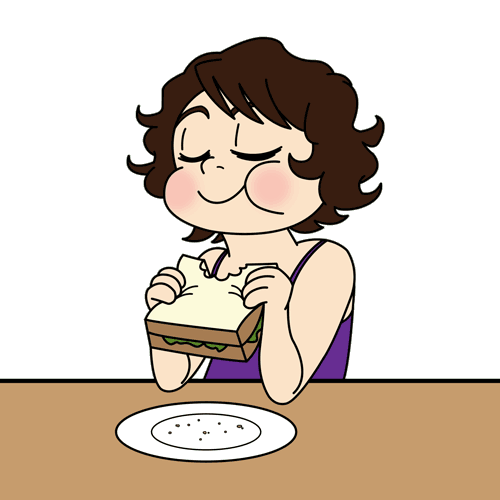 Do not bring sausages with you to visit, look for a compromise. Patient and playful. Invite your child to look in the refrigerator and choose their own food. He doesn’t like vegetables - make soup puree, try to cut out figures from cucumbers and carrots, fruits can be turned into cocktails, come up with funny names for everything, involve even the smallest gourmet in cooking. Very often, children agree to try a new unfamiliar dish at a party, when everyone else eats it with appetite.
Do not bring sausages with you to visit, look for a compromise. Patient and playful. Invite your child to look in the refrigerator and choose their own food. He doesn’t like vegetables - make soup puree, try to cut out figures from cucumbers and carrots, fruits can be turned into cocktails, come up with funny names for everything, involve even the smallest gourmet in cooking. Very often, children agree to try a new unfamiliar dish at a party, when everyone else eats it with appetite.
REASON 7 Doesn't eat to please mother. For example, it’s time for mom to go to work, but she doesn’t want to, and she says this: “I can’t send Petya to kindergarten, he DOES NOT EAT ANYTHING, I will have to sit at home with him.” And Petya shakes his mustache and does not eat, as his mother “programmed”. Or another option - the mother wants to show everyone that her child is special. WHAT TO DO: Parents to deal with their own fears and complexes.
REASON 8 The cult of food in the family Meals in your house are given too much importance.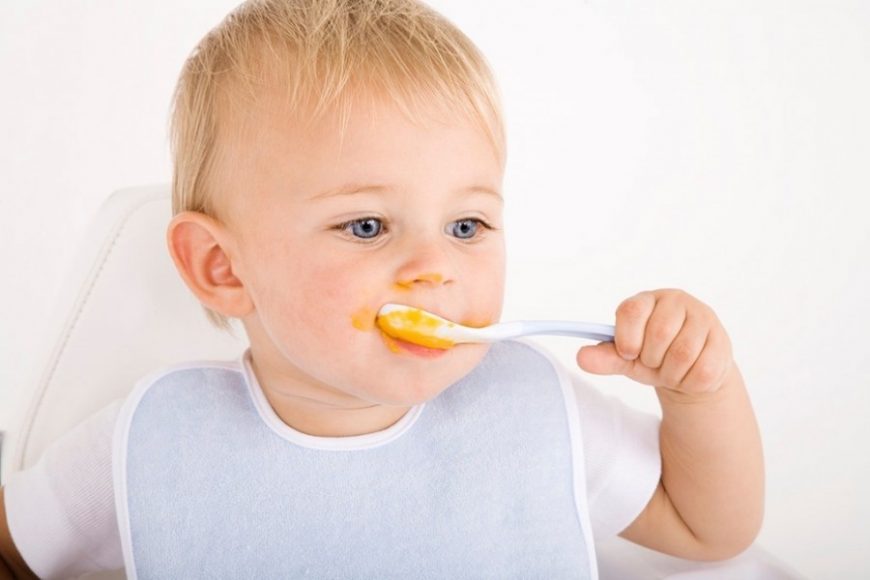 Mom cooks dinner, and this is an event. Did the child not eat? Catastrophe! Ate? Happiness! The kid quickly realizes that since food is so important, he can control his parents with the help of ate or did not eat. WHAT TO DO: Do not pay so much attention to whether the child is full or not, do not turn lunches and dinners into events. Snack on the road, sometimes skip meals, like all normal people.
Mom cooks dinner, and this is an event. Did the child not eat? Catastrophe! Ate? Happiness! The kid quickly realizes that since food is so important, he can control his parents with the help of ate or did not eat. WHAT TO DO: Do not pay so much attention to whether the child is full or not, do not turn lunches and dinners into events. Snack on the road, sometimes skip meals, like all normal people.
REASON 9 Never been hungry The child does not understand that food can bring joy, he was never hungry, did not wait for dinner, did not dream of soup, because his parents constantly push food into him before he gets hungry. WHAT TO DO : Try not to feed your baby. Accept his food refusals. Wait until he asks for food. Or create an unexpected situation - an empty refrigerator, there is nothing to cook for dinner. There is only, for example, potatoes. The child will want to eat and learn to appreciate the simplest dishes.
Age category of the site 18+
The online publication (website) is registered by Roskomnadzor, certificate El No. FS77-80505 dated March 15, 2021.
FS77-80505 dated March 15, 2021.
I.O. EDITOR-IN-CHIEF OF THE SITE - KANSKY VICTOR FYODOROVICH.
THE AUTHOR OF THE MODERN VERSION OF THE EDITION IS SUNGORKIN VLADIMIR NIKOLAEVICH.
Messages and comments from site readers are posted without preliminary editing. The editors reserve the right to remove them from the site or edit them if the specified messages and comments are an abuse of freedom mass media or violation of other requirements of the law.
JSC "Publishing House "Komsomolskaya Pravda". TIN: 7714037217 PSRN: 1027739295781 127015, Moscow, Novodmitrovskaya d. 2B, Tel. +7 (495) 777-02-82.
Exclusive rights to materials posted on the website www.kp.ru, in accordance with the legislation of the Russian Federation for the Protection of the Results of Intellectual Activity belong to JSC Publishing House Komsomolskaya Pravda, and do not be used by others in any way form without the written permission of the copyright holder.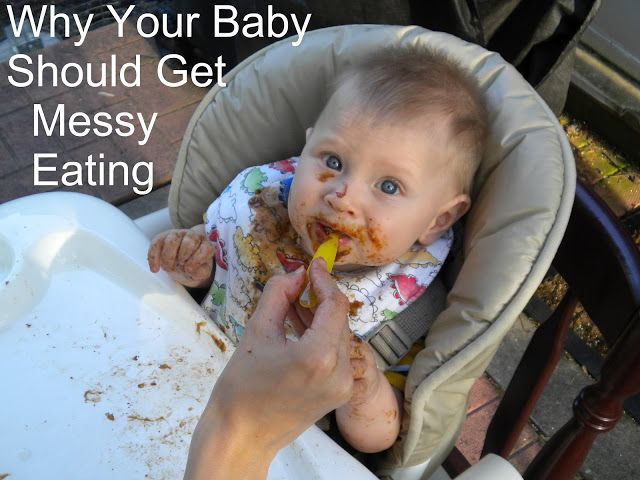
Acquisition of copyright and communication with the editors: [email protected]
SOS! The child does not eat anything! What to do?!
“Give me another spoon and that's it! And now a spoonful for dad, now for mom, and now for grandma…”
Many parents are familiar with this story of persuading their child to eat.
I am often asked what to do if the child does not eat, and, to be honest, this is one of the most simple and difficult questions at the same time.
No, everything is just simple with a child - usually you just need him to get hungry. But the real problem with parents is that it’s hard for them to survive if they don’t feed the child. Here, for example, is what the mother of a one-year-old daughter says: “At first we did not force-feed her!!! Do you think I don't feel sorry for my child when he cries? Until six months she ate when she wanted, then refused to eat. I endured the day (KEY PHRASE - I SUFFERED THE DAY!), then I force-fed, because I can not look at my child without tears!!! Skin and bones, all the ribs, the spine are visible! Listening to this mother, I could hardly resist asking her: “What should she look like at 6 months old? Swimming in fat? Children are different - chubby and thin.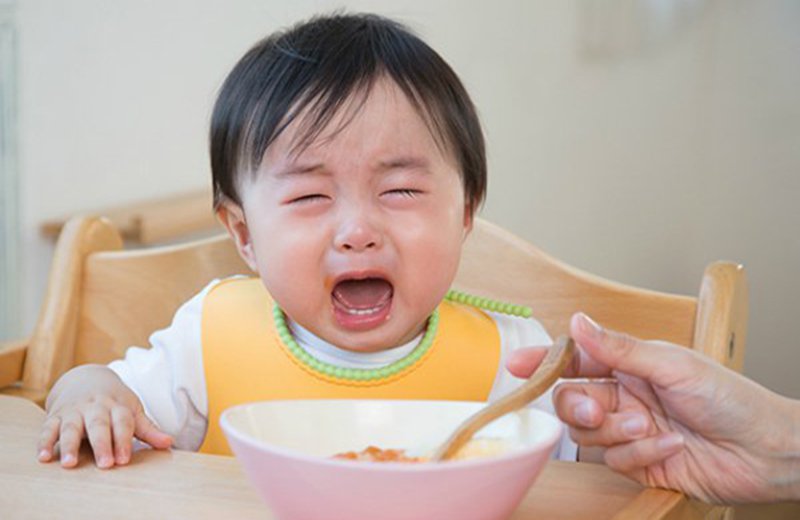 Mine, for example, were born thin, the son grew up like that, and when the youngest daughter gained 1700 g in the first month only on breastfeeding, I was seriously scared, because there was nothing like this with the eldest - I added the “required” 700 g per month and all.
Mine, for example, were born thin, the son grew up like that, and when the youngest daughter gained 1700 g in the first month only on breastfeeding, I was seriously scared, because there was nothing like this with the eldest - I added the “required” 700 g per month and all.
Isn't he hungry?!
The simplest and most obvious reason why a child does not eat is simply that he is not hungry!!! We try so hard to feed our kids that they don't even know what hunger is. Once I witnessed how my friend forcibly fed her 8-month-old son with cottage cheese - Ivan sobbed, but swallowed, to all my questions why she was doing this, Natalya answered: “I feel so calmer.” Just think! Calm down from what? From the fact that he will have a full stomach, but at the same time he is crying and she is committing violence against him?!
What to do?
Let your child get hungry!
To do this:
1) remove all snacks from the reach of a child of any age: cookies, fruits, juices, compotes, sweet teas, sweets, sandwiches, etc.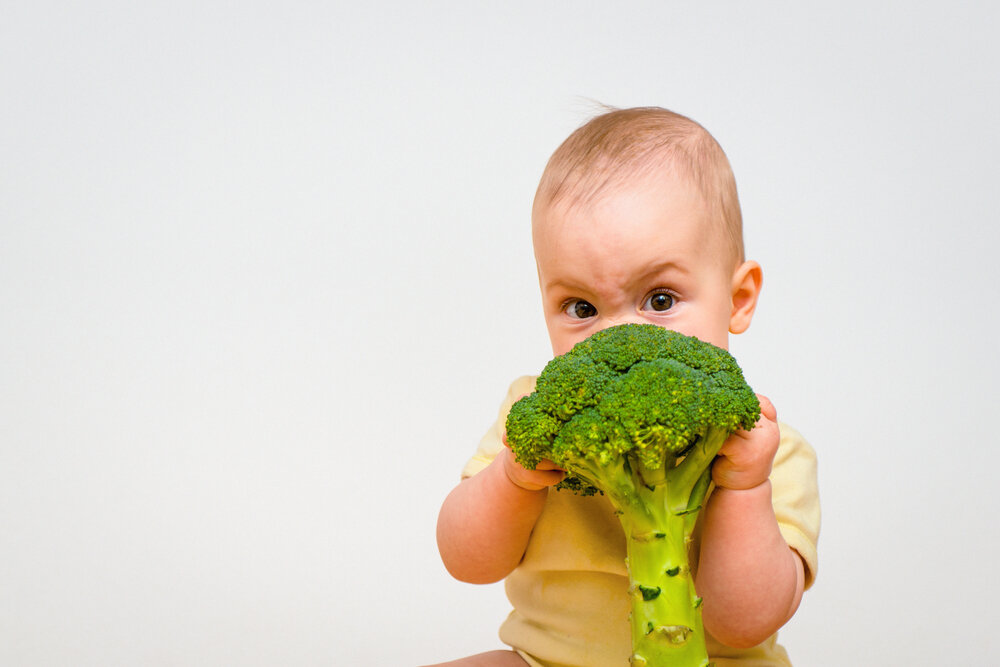 - everything that contains calories and can interrupt appetite;
- everything that contains calories and can interrupt appetite;
2) offer the child food and be prepared that he will refuse;
3) remain calm and friendly
4) wait until the child feels hungry and asks for food or agrees to your offer!
In this situation, the most difficult thing is to control yourself so as not to panic and start feeding the baby when you think that he is hungry, and not when he really wants to eat. Children who have never experienced hunger cannot even identify it
If a child does not eat anything for 1 or 2 days, he will not die!!! Everything will be fine with him! As soon as he realizes that he is hungry, he will come to you and ask you to eat.
He hurts!
When my son Nazar was about 2 years old, we rested in the Crimea. On the way to the sea, probably on the train, he caught stomatitis - these are small, but very painful sores in the mouth. It was very painful to swallow and chew food, and therefore Nazar did not eat anything for 6 days, he only drank water. The infection went away on the fourth day after special treatment and treatment, but for two more days my son was simply afraid to eat. Knowing that he likes dumplings and french fries most of all, my husband and I took him to our favorite cafe and took both dishes, as well as ice cream, cake - whatever he could like. At first, the son refused to eat - we didn’t persuade him, we just said that we were hungry and decided to eat, but he didn’t have to if he didn’t want to. They ate dumplings and watched their son: at first he just sat, then burst into tears, and only then, after probably 40 minutes, he carefully ate the dumpling. Then another and another... We were happy - now the main thing was not to overfeed, because Nazar's appetite woke up and he was convinced that the pain was gone!
On the way to the sea, probably on the train, he caught stomatitis - these are small, but very painful sores in the mouth. It was very painful to swallow and chew food, and therefore Nazar did not eat anything for 6 days, he only drank water. The infection went away on the fourth day after special treatment and treatment, but for two more days my son was simply afraid to eat. Knowing that he likes dumplings and french fries most of all, my husband and I took him to our favorite cafe and took both dishes, as well as ice cream, cake - whatever he could like. At first, the son refused to eat - we didn’t persuade him, we just said that we were hungry and decided to eat, but he didn’t have to if he didn’t want to. They ate dumplings and watched their son: at first he just sat, then burst into tears, and only then, after probably 40 minutes, he carefully ate the dumpling. Then another and another... We were happy - now the main thing was not to overfeed, because Nazar's appetite woke up and he was convinced that the pain was gone!
When a child is sick, the body does not perceive food - all its forces are spent on fighting the source of the disease, and the brain simply does not send signals about hunger.
That is why the child does not want to eat. But as soon as the baby begins to recover, the brain immediately sends a signal: it's time to eat!
Is food evil?!
For various reasons, we adults sometimes don't want to eat either: trouble at work, it's hot, we're busy with something interesting, we're just not hungry yet... But for some reason we are sure that children simply must always eat with appetite! And therefore, we are ready to persuade the child to eat for hours, and if persuasion does not help, we begin to entertain - cartoons, talking dolls, dancing relatives ... Threats do not help either - you won’t go for a walk, you won’t buy a toy, you won’t watch your favorite cartoon, you won’t get up from the table until you eat it ... Somehow, in my childhood, I spent the whole day over a plate of borscht and by the evening I was already hungry, but I never asked to eat, because somewhere inside I understood that if I eat, I will lose and I will always have to eat .
We ourselves teach children that food is boring, that it is violence, that it is evil…
What to do? Simply understand that a child, like us, can have many reasons why he does not want to eat at the moment, and be ready to feed when he has an appetite. It's so easy - take a bottle of milk, yogurt, puree, fruit or even a thermos of your favorite soup with you for a walk and feed your child quickly and easily when he gets hungry, right on the street! Fortunately, civilization provides us with all the opportunities for this: wet wipes, dishes, thermoses ...
How can I send him to kindergarten if he does not eat anything?
Before kindergarten, my son Nazar had never been forced to eat. Even at 2 months, being bottle-fed, he ate only 4 times a day, not 8, and gave back any attempt to feed the fountain. Fortunately, I realized that this is his way of signaling satiety. When he went to kindergarten, one of my main requests to the teachers was not to force him to eat under any circumstances.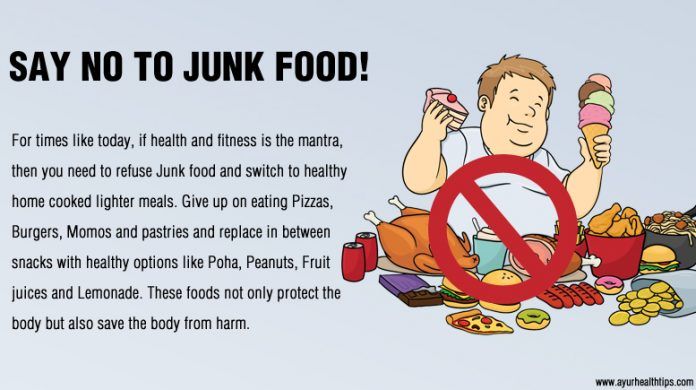 For the first few weeks, they lamented and said that he did not eat anything except bread and compote, then, with surprise and delight, they began to say that Nazar eats soups and cereals best of all. No wonder, after all, soups and cereals are my son’s favorite dishes, and when he got used to the new environment, people, children and the daily routine, he began to eat with pleasure what he liked to eat at home!
For the first few weeks, they lamented and said that he did not eat anything except bread and compote, then, with surprise and delight, they began to say that Nazar eats soups and cereals best of all. No wonder, after all, soups and cereals are my son’s favorite dishes, and when he got used to the new environment, people, children and the daily routine, he began to eat with pleasure what he liked to eat at home!
Don't panic! Peace, only peace!
This is the main motto of mother and close relatives when the child suddenly stops eating! One of my friend's 2-month-old daughter suddenly stopped breastfeeding! For 1.5 days, Katya called up several times with breastfeeding specialists and, trying to remain calm, followed their instructions. Only on the second day, her daughter agreed to drink a little milk from a teaspoon, then more, but in order not to wean her from breastfeeding in this way, Katya put the baby to her breast again and again, and if something didn’t work out, she called the specialists in breastfeeding.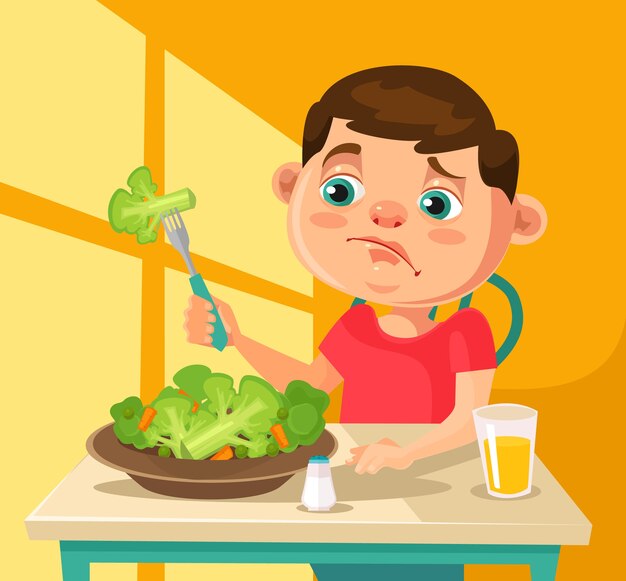 The young mother was able not to panic, to find the strength not to listen to the “useful” advice of relatives and friends, and to find support in the face of specialists. Now her baby is almost a year old and this wonderful creature drinks her mother's milk with pleasure and does not know what a lack of appetite is.
The young mother was able not to panic, to find the strength not to listen to the “useful” advice of relatives and friends, and to find support in the face of specialists. Now her baby is almost a year old and this wonderful creature drinks her mother's milk with pleasure and does not know what a lack of appetite is.
Tasty? Is not a fact!
Another reason why a child does not want to eat is simply that he does not like the taste of the food or its appearance. We sometimes find it hard to come to terms with the fact that our children turn up their noses at food. But this is a fact - we and children can have different taste preferences. Be patient, understand what your child likes the most, and cook these dishes as often as he wants. Most likely, after some time, the taste of macaroni and cheese will become boring and your beloved child will ask for something else. Better yet, involve your child in cooking from a very early age: even a one-year-old child will be happy to break an egg for scrambled eggs! And there is a dish prepared with your own hands, much more interesting and tastier! The Internet is full of delicious and easy-to-cook recipes for kids - choose together and cook together.





